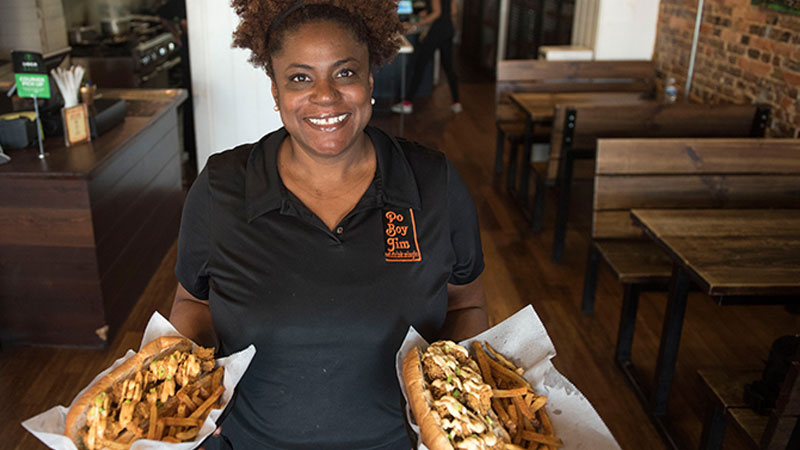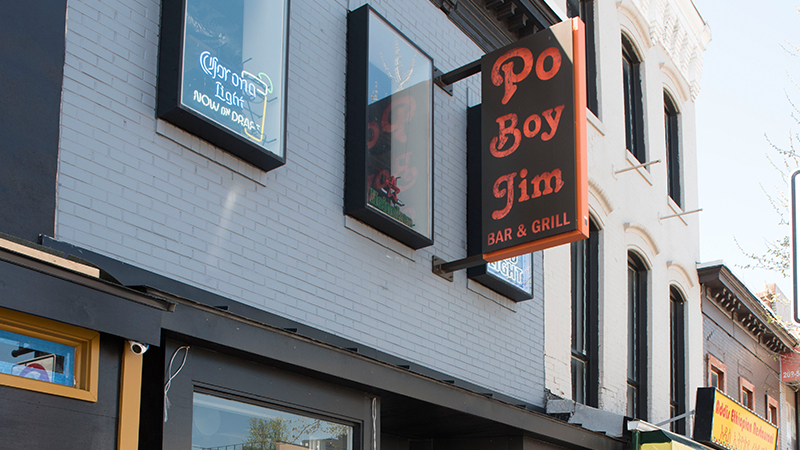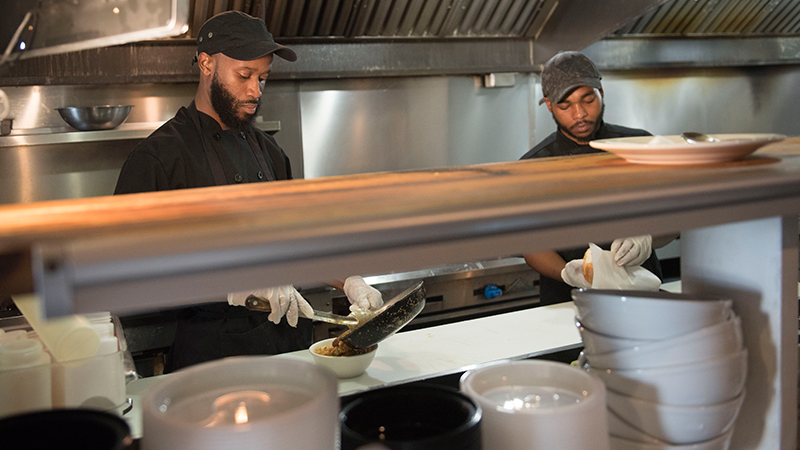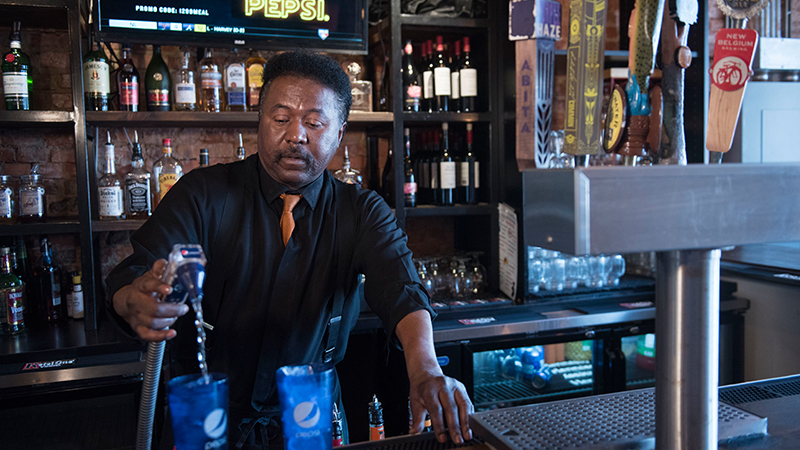Initially, the Po Boy Jim team secured funding from a traditional lender, but when that fell through at the last minute, they again wiped out their savings on the second location, which also needed a major renovation. Still short of funds, Miskiri then took out a “hard-money loan,” a last-resort type of loan, secured by real estate, that had a whopping 33 percent interest rate.
“That loan was just too expensive for us. It almost killed us,” explains Miskiri. “So again we went to Wacif, which we think of as our big brother,” he adds affectionately.
Through Wacif, the Po Boy Jim team secured an additional $225,000 in financing to pay off the higher-cost debt, which Miskiri says was critical to the long-term financial health of the business.
“The sales were coming in but the loan payments were too much for us to handle. The money from Wacif literally saved our business,” says Miskiri. Last year, they were able to open their Shaw location.
Today, the two restaurants are succeeding and the co-founders maintain a strong commitment to the community. Po Boy Jim has created more than 40 local jobs and hosts quarterly toy drives for kids in need and various charitable holiday events.
And they aren’t done, says Miskiri. “We want Po Boy Jim to be the next big franchise to come out of D.C.,” he says. “And no matter where we go, our big brother Wacif will always be a huge part of the reason we got there.”
Learn more about our investment in Greater Washington D.C.







